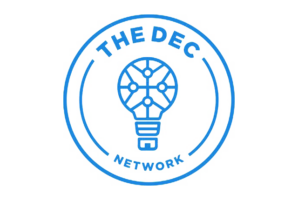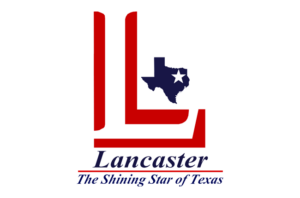NORTH TEXAS IS REASONING MIND’S LARGEST REGION BY ENROLLMENT
Yesenia Avila can tackle a math problem in a matter of seconds.
When, “23 + 6,” flashes across her tablet, she records the sum without any hesitation.
“I can sit and do math in my head,” says the 8-year-old proudly.
Adding and subtracting are important concepts for students to master in second grade, especially when it involves two- and three-digit numbers, said Yesenia’s teacher, Sarah Sullivan.
“They have to know adding and subtracting ends and outs by third grade because in third grade they’ll start multiplication and division,” Sullivan said.
“My students in second grade — 7- and 8-year-olds — solve for x, which is something when I was in school that I was doing in seventh grade.” Sarah Sullivan.
Sullivan’s students at the private Momentous School in Oak Cliff use an online program called Reasoning Mind to supplement her math instruction.
Two hours a week, Yesenia and her peers scatter about the classroom with computers to work through lessons at their own pace. Sullivan can check their progress through data funneled to her computer and pull aside students who might need extra instruction on particular concepts.
The online math programs developed by the Houston-based nonprofit are designed to give students the foundation needed to be successful in algebra beginning with second grade and following up through seventh.
“My students in second grade — 7- and 8-year-olds — solve for x, which is something when I was in school that I was doing in seventh grade,” Sullivan said.
In May 2015, Reasoning Mind won the Deloitte RightStep Innovation Prize, which included a $100,000 cash award and $100,000 more in pro bono services from Deloitte.
The nonprofit received a $100,000 grant from Dallas-based The Meadows Foundation in April to develop an early learning curriculum, which it plans to pilot next school year.
By 2018, the nonprofit hopes to add Pre-Kindergarten through first grade, and an eighth grade curriculum to round out its offerings.
NONPROFIT BRED FROM DISSATISFACTION WITH MATH EDUCATION
After immigrating to the United States from the Soviet Union in 1990, Alex and Julia Khachatryan, who had math and science backgrounds, were dissatisfied with their son’s math education.
“They found that George, even though he was getting As in math, had some pretty serious gaps in his knowledge and he wasn’t very interested in it,” Reasoning Mind spokesperson Derek Hopf said. “To them, a family with this really strong math pedigree, that was really upsetting.”
In 2000, they founded Reasoning Mind, along with their son, George, to offer students a math education based on curriculum and practices from countries such as Russia and Singapore, which have high math performance rates. They first implemented the programs in schools in 2005.
“A lot of ed-tech products are superficial in the sense that they are game-based or problem/practice over and over … None of those things are bad, but if that’s all you focus on, you’re not really replicating what a quality math class is,” Hopf said.
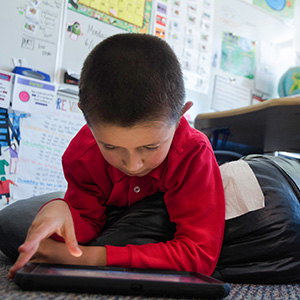
Ramses Holland focuses on a math problem while using the Reasoning Mind math program on his tablet. Photo by Hannah Ridings.
If students begin struggling, the Reasoning Mind Foundations program for grades 2-5, will revert back to prerequisite lessons to make sure they understand the concept before moving forward. For those students that have mastered the material, they will automatically be challenged with more intense problems.
There is a gamification component. As students answer questions correctly, they receive points that can be redeemed for virtual goods in the program’s shopping mall.
“I can get the pogocow! That’s my last one!” said Momentous second-grader Rene Miranda to nearby classmates.
Rene, who is already starting on third grade curriculum, had 24,214 points on a recent afternoon. He enjoys filling his virtual room with the goods he buys in the program but said he also likes learning about math as well.
“It has a lot of fun things like the puzzles,” Rene said of the program.
PROGRAM ‘CHANGES PACE’ OF MATH CLASS
Momentous, which runs from Pre-Kindergarten through fifth grade, first partnered with Reasoning Mind in 2006. Currently, teachers in grades 2-4 utilize the program as supplemental instruction. In fifth grade, Reasoning Mind is the core curriculum.
Sandy Nobles, director of education and principal for the Momentous School, said the program changes the pace of a math class for the better.
“It’s individualized so that the teacher is personalizing that learning for that child,” Nobles said.
Currently, Reasoning Mind serves more than 125,000 students across 12 states. North Texas is its largest region with more than 37,000 students, most of which come from its partnership with Dallas ISD.
“It’s individualized so that the teacher is personalizing that learning for that child.” – Sandy Nobles
Stej Sanchez, DISD’s director of mathematics, said it’s more than an online program. Reasoning Mind also teaches kids about note taking and enables teachers to target those students who might need more help on certain concepts. There’s also a professional development component for teachers.
“The implementation coordinators from Reasoning Mind, they work with the teacher to make sure that it’s not something in addition to, but something that can easily be integrated in the classroom,” Sanchez said.
Following the 2011-2012 school year, when the program first went districtwide for DISD second graders, The Dallas Morning News reported that a DISD analysis concluded Reasoning Mind to be “costly and ineffective.” The district later denounced the study and continued its partnership with the nonprofit.
Sanchez wasn’t in charge of math curriculum at the time, but said based on a non-randomized study of the 2014-2015 school year performed by DISD’s department of evaluation and assessment, the program is making a positive impact.
“I’m going to default to the surveys and the teachers and administrators say they generally believe that it does make a difference. I have to go by that data,” Sanchez said.
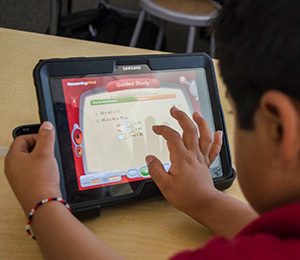
Jonathan Garcia practices subtraction with the Reasoning Mind program at Momentous School. Photo by Hannah Ridings.
Use of Reasoning Mind wasn’t equal across the district in 2014-2015. The study found the number of students meeting the recommended 60 hours of program use was 44 percent for second grade, 35 percent for third grade, and 26 percent for fourth grade. For those fifth graders using Reasoning Mind as the core curriculum, only 21 percent met the 205-hour goal of program use.
Students who spent at least 75 percent of the targeted time outperformed students who used it less on the Iowa Assessment and STAAR, according to the study.
“One of the key hurdles was technology and that’s probably the reason why implementation wasn’t uniform,” Sanchez said.
To address this, Sanchez said he has been working more closely with the district’s IT department. The district has also been working to dole out 7,700 new computers to campuses.
Prior to implementing Reasoning Mind, Nobles said the Momentous School’s fifth grade commended rate on the Texas Assessment of Knowledge and Skills test was about 14 percent. By the third year of using Reasoning Mind, the commended rate for fifth graders increased to 72 percent.
Nobles said she believes the impact of the program has translated to success beyond students’ years at Momentous.
“I know that for our former students that come back, middle school math isn’t that challenge for them … because they have that pre-algebra vocabulary [and] experience,” she said.
For a daily dose of what’s new and next in Dallas-Fort Worth innovation, subscribe to our Dallas Innovates e-newsletter.

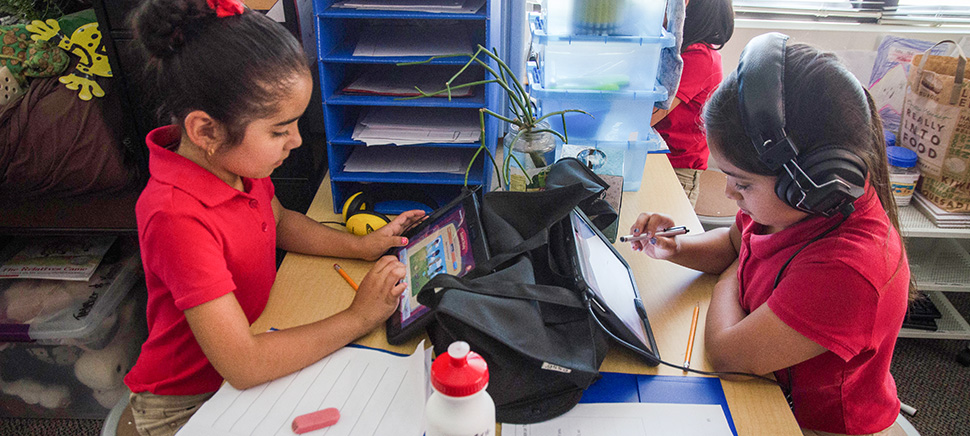









![Manufacturing Institute President Carolyn Lee delivers the annual State of the Manufacturing Workforce Address at NTT DATA's North American headquarters in Plano on Feb. 25, 2026. [Screenshot/NAM YouTube]](https://s24806.pcdn.co/wp-content/uploads/2026/02/Carolyn-Lee.png)












